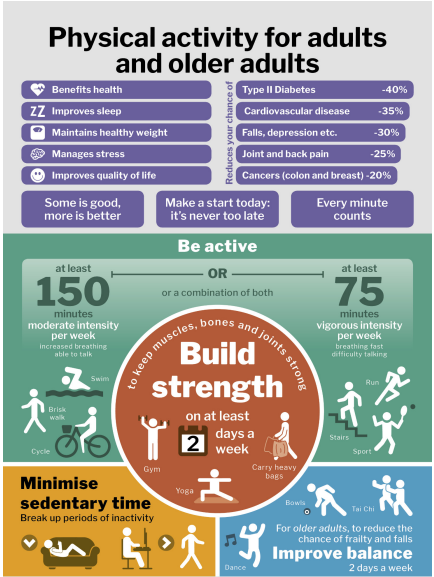MINOR ILLNESS
COUGHS, COLD AND MORE MINOR INFECTIONS are very common and unfortunately as yet there is no miracle cure, other than time and simple home remedies that you can use yourself. The Pharmacist will be glad to advise you about remedies available, but it is useful to keep simple pain relief such as paracetamol, diarrhoea treatment and soothing skin lotions to hand at home. Resting and drinking plenty of liquid helps you feel comfortable whilst your body’s defences let you get better. If you continue to feel ill for longer than a few days then please ask for more advice.
ARE YOU SUFFERING WITH ANXIETY OR DEPRESSION?
Perhaps you’re feeling stressed and struggling to control your worry? Do you experience feelings of panic or obsess about certain thoughts?
You're not alone. Help is out there. Last year more than 30,000 people in Lancashire and South Cumbria benefitted from NHS Talking Therapies – formerly known as IAPT (Improving Access to Psychological Therapies).
NHS Talking Therapies involve free groups and courses, as well as one to one therapy to help you understand what you’re going through and build your confidence.
You can refer yourself – which means you don't have to see your GP first. Find out more information or refer yourself today by visiting:
www.lscft.nhs.uk/talkingtherapies
MEDICATION FOR PATIENTS HAVING MRI SCANS AND OTHER INVESTIGATIVE PROCEDURES
After very careful consideration we have decided to no longer prescribe diazepam for patients having MRI scans or other investigative procedures. This is not a decision we took lightly; we have a duty of care to provide safe, consistent and appropriate care for our patients. We hope the reasons outlined below help to explain our main concerns.
Small doses of benzodiazepines such as 2mg diazepam are probably sub-therapeutic for most adults for any effective sedation. Conversely anxiolytics can have an idiosyncratic response in patients, and even very small doses can increase agitation in some subsets of patients.
A patient may take a sedative an hour before their assumed procedure, to then attend the hospital to find their procedure has been delayed, therefore the timing of the anxiolytic being sub optimal.
GPs are not regularly involved, skilled, trained or appraised in sedation skills.
All hospital consultants, both those requesting imaging and those providing it, have access to the same prescribing abilities as GPs. If a patient needs a certain medication to enable an investigation to go ahead, they are just as well positioned to provide a prescription, either through the hospital pharmacy or hospital FP10.
Sedated patients should be regularly monitored, and we have been made aware of a case where a GP provided sedative was given, the patient not monitored, and subsequently had a respiratory arrest in an MRI machine.
The Royal College of Radiologists' own guidelines on sedation for imaging makes no mention of GP involvement or provision of low dose anxiolytics and stresses the importance of experienced well-trained staff involved and the monitoring of sedated patients.
You may wish to discuss this with your radiologist or consultant regarding the next steps.
IMPROVING HEART HEALTH
There are several ways to reduce the risks to our heart health and we have tried to summarise these below. If there are any areas where you feel improvements can be made, that would be a good place to start.
Heart disease risk can be increased by some medical conditions, the presence of some risk factors and by unhealthy diet and exercise choices.
Managing Medical Conditions:
- Good blood pressure control
- Good blood sugar control
- Identifying high LDL cholesterol and managing this through lifestyle and/or medication - https://www.nhs.uk/conditions/high-cholesterol/how-to-lower-your-cholesterol/
Managing risk factors:
- Reducing smoking with a goal to stop completely - https://www.smokefreelancashire.org.uk/
- Reducing alcohol to 14 units per week with a few days off each week.
- Identifying whether weight or waist size are increased and taking steps to improve.
- BMI to aim for 20-25 – any reduction toward this is a positive step.
- Waist size to aim for <94cm men and <80cm women
Healthy Eating:
- The UK’s NICE (national institute for health and care excellence) suggest following the ‘NHS eat well guidance’ - https://www.nhs.uk/live-well/eat-well/food-guidelines-and-food-labels/the-eatwell-guide/
- NICE also recommend a ‘cardioprotective diet’ – reducing fat to <30% of the total diet and trying to reduce saturated fat by substituting other types in its place.
- The European Society of Cardiology also recommend a low in saturated fat diet with a focus on increasing wholegrains, fruit, vegetables and fish.
Physical Activity
- The UK’s Chief Medical Officer has laid out the recommendation of at least 150 minutes of moderate exercise per week or 75 minutes of vigorous exercise (or a combination of both). See poster below
- The European Society of Cardiology recommend 3.5-7 hours of moderately vigorous exercise per week or 30-60 minutes most days


